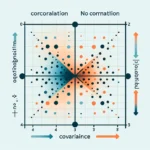**Intraclass Correlation (ICC) in Cognitive Testing** Intraclass Correlation, commonly abbreviated as ICC, is a statistical measure used extensively in cognitive testing to determine the reliability of measurements when assessments are conducted by different testers or at different times. The ICC is crucial for psychologists, researchers, and educators, as it provides insight into the consistency of […]










